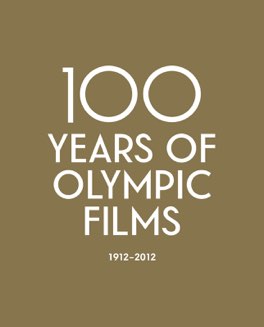YURI OZEROV
O Sport, You Are Peace!
I am constantly amazed at just how much I enjoy these films. To be honest though, it shouldn’t really be this much of a surprise. I’m sure I’ve mentioned before that I am an absolute Olympic Games fanatic. There’s just something about the spectacle, the athletic competition, the coming together of different people, that makes me drop everything else in my life whenever they come around.
Still, after so many Olympics films, one might assume that I’d be growing tired of them. I’m not. At least not when given a film as well made and throughly enjoyable as this one. It’s just startlingly competent. Sure, all the hallmarks of the Olympic film foibles are present. The narration is awfully snooty at times, taking itself far too seriously. There is the usual amount of nationalism present, although to be honest I was shocked at how relatively un-nationalistic this particular entry is.
I expected a film from the Soviet Union of this era to be rampant, but other than the usual preoccupation with their own athletes it really wasn’t.
As far as I can tell this is the edition of the games that gave us the first modern over-the-top opening ceremony. It’s bonkers. There is an entire section of the stadium with people holding up different colored canvas, and they switch them with enough accuracy to do animations. When the torch lighter arrives, he runs up to the top on a suddenly human constructed walkway. It has to be witnessed. It’s also the first games with a mascot, which judging by the film the spectators seemed to enjoy.
What matters though is how the games are presented. This one backed away a little bit from the overly artistic ambitions of the last few films, but not far enough that it lost the sense of beauty. What it added was a comprehensive attempt to showcase what actually happened. This is a real documentary, attempting to convey the winners, the records, and what went on during the games.
As a witness from almost forty years in the future it’s so wonderful to get to relive some of these competitive moments. The film also doesn’t only showcase the winners if they are from the Soviet Union, although it certainly does celebrate those athletes the most. It’s also really nice to see what the arts and culture part of the games looked like. There were representatives of all the constituent parts of the Soviet Union, and it’s beautiful to watch.
Another thing that surprised and pleased me was that the film didn’t shy away from the subject of the boycott. In 1980, more than sixty nations didn’t participate in the games, in response to the Soviet invasion of Afghanistan. The film directly comments on the situation, and makes the argument that the Olympics aren’t meant to be politicized.
To be honest I can see both sides of this, but it was refreshing that they confronted it directly. Finally, there’s an attempt at some feminism, with an entire section devoted to the importance, power, skill, and competitive spirit of the women who competed in the games. It’s a bit clunky, but it’s so nice to at least see them try.
